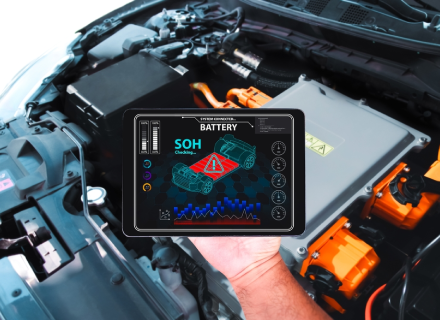Japan has announced plans to increase its subsidies for the production of batteries for electric vehicles and has committed up to USD 20.4 billion in funding for Toyota Motor’s related projects and other significant businesses in an effort to fortify its battery supply chain.
According to Minister of Economy, Trade and Industry Ken Saito, the government will provide up to 350 billion yen (USD 2.44 billion) for 12 projects involving storage batteries or related parts, materials, or production equipment.
“We hope that these efforts will strengthen Japan’s storage battery supply chain and the storage battery industry’s competitiveness,” Saito said, as reported by Reuters.
According to reports from Japanese media, the action will help increase the nation’s yearly production capacity for storage batteries by about 50% to 120 gigawatt-hours (GWh), from 80 GWh at the moment.
“The government backing included support for investments by Toyota, Nissan Motor, and joint projects that Panasonic Holdings’ energy unit would run with automakers Subaru and Mazda Motor, respectively,” Saito said.
The latest assistance follows the Fumio Kishida government’s June 2018 announcement of nearly USD 1 billion in subsidies, with the first batch to be awarded in April 2023, for the production of storage batteries.
With its battery subsidiaries Prime Planet Energy and Solutions and Primearth EV Energy, Toyota would invest a total of roughly 245 billion yen to increase solid-state and prismatic battery production capacity by 9 GWh, according to the industry ministry. Toyota is also opening a new EV battery plant to supply upcoming Lexus EVs, which are slated to open by 2029.
Toyota plans to begin battery deliveries in November 2026. The Yomiuri newspaper reports that the plan calls for the construction of battery plants in the prefectures of Hyogo and Fukuoka.
Toyota acknowledged in a statement that the ministry had approved the plans for the development and manufacturing of its solid-state and next-generation batteries. Still, it did not provide details about the new plants or the amount of money it would be investing.
Nissan announced in a statement that the government had certified its plan to manufacture lithium-iron-phosphate batteries. The carmaker planned to incorporate these batteries into small cars starting in the 2028 fiscal year.
It stated that it would receive up to 55.05 billion yen in support for achieving its domestic production capacity of 5 GWh annually.
Japan’s Panasonic will build EV battery parts for Subaru and Mazda as it teams up with them to boost domestic production. It’s expected to invest around USD 3.8 billion (550 billion yen).
Meanwhile, as per another report from Electrek, Toyota and Nissan will lead the efforts of the Japanese automobile industry that will invest USD 7 billion (1 trillion yen) to boost the nation’s EV battery output. The Japanese government will help as it aims to establish a domestic supply chain while moving away from China and South Korea, which currently dominate the market.
Japan has been seen as one of the biggest laggards as the industry shifts to all-electric. Sales of domestic EVs fell 39% in the first half of the year.
According to the Japan Light Motor Vehicle and Motorcycle Association, domestic passenger EV sales totalled 29,282 through June 2024, down 39% from 2023. Electric vehicle share of passenger vehicle sales slipped 0.7% from the first half of 2023 to 1.6%.
As per a spokesperson of the Japan Automobile Importers Association (JAIA), foreign brands are taking Japan’s EV market by storm. China’s BYD, for example, is offering a “wider variety of models than domestic manufacturers.
BYD’s passenger car imports surged 184% in the first half of 2024. Although only 980 BYD models were imported, BYD is gaining a foothold as new models hit the market.
After launching its first EV, the Atto 3, in Japan in January 2024, BYD has introduced other top-selling models, including the Dolphin and, most recently, the Seal. BYD launched the Seal EV in Japan in June, with starting prices around USD 33,100 (5.28 million yen).
In fact, BYD can now launch low-cost EVs as it controls nearly its entire supply chain. The Chinese automaker, often touted as Tesla’s rival, has emerged as the second largest EV battery maker globally, behind CATL.
As Japan looks to secure an EV battery supply chain, domestic companies, including Toyota and Nissan, are investing heavily.

